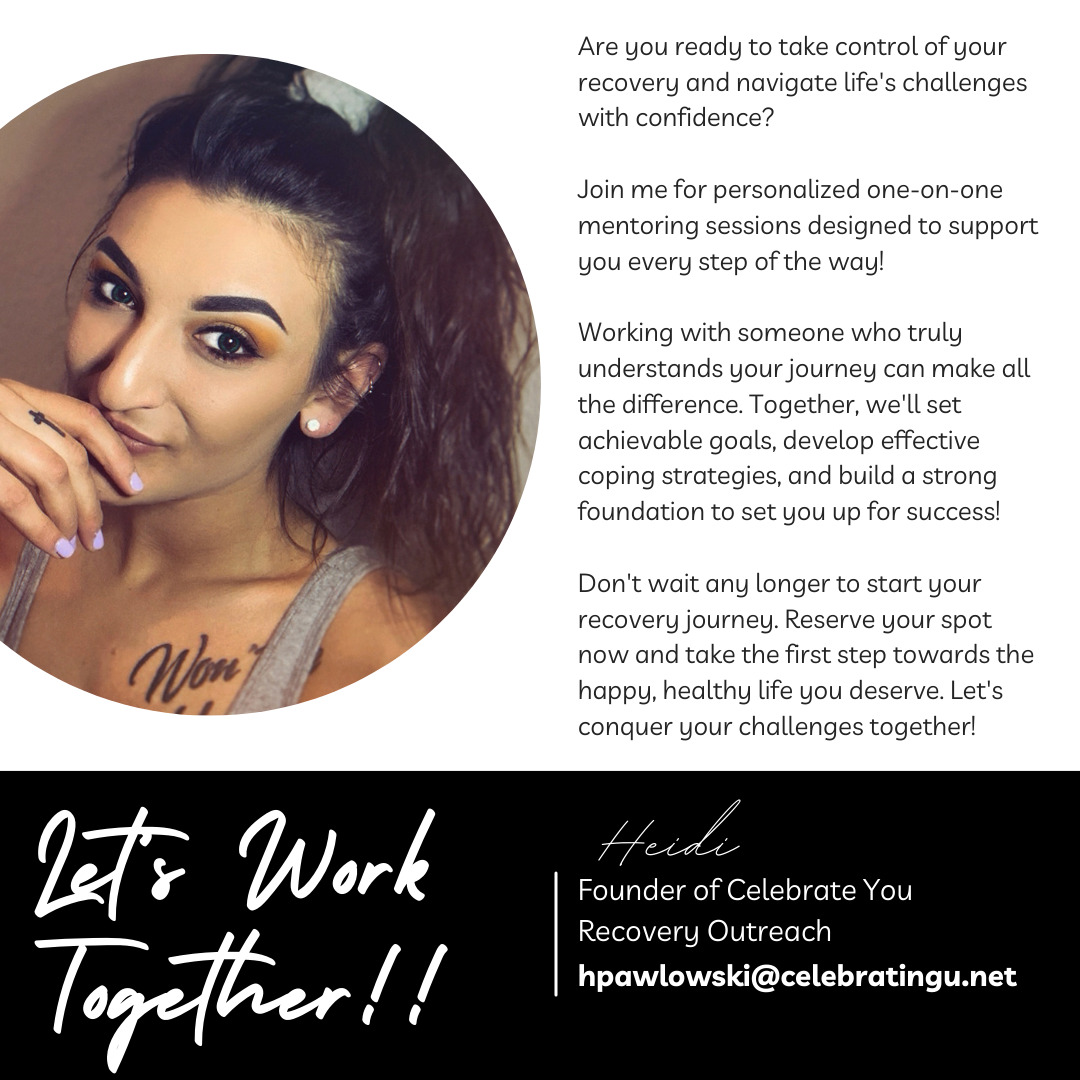Navigating Life Transitions and Unexpected Change in Sobriety
Life never stops giving us new obstacles to overcome. Some planned and others that catch us completely off guard.
For those of us in recovery, these changes can bring up a mix of emotions, including fear, uncertainty, and even temptation to revert to old coping mechanisms.
Learning to live life on life’s terms really is a bitch sometimes.
As someone who has faced major life transitions in sobriety—from moving across the country, to becoming a mother, to heartbreak, and losing a loved one—I know how challenging it can be to stay grounded.
But I also know it’s possible.
Oh, how naïve I was to think that getting sober would magically make life suck less. Spoiler alert: it doesn’t. Sobriety doesn’t promise to wrap your problems up in a neat little bow and ship them off to someone else. What I’ve learned (the hard way) is that life keeps lifing whether you’re sober or not.
The difference is, when you’re sober, you actually get to decide how you respond to the chaos instead of being dragged by it.
I’ve been on both sides of the coin, and I’ll let you guess which one works better. Here’s a hint: it’s not the side where I let the weight of my circumstances pull me back to a place where using felt like a valid solution.
Every single time I’ve taken that route, it didn’t fix a damn thing. The bills didn’t vanish, the heartbreak didn’t heal, and the stress didn’t miraculously disappear. All it did was leave me less equipped to deal with the mess I was already in.
So, instead of doubling down on the difficulty, I’ve learned to choose the harder-but-better option: facing life and all it’s unexplained and unexpected turns - sober.
If you’re struggling to do the same, here are some simple yet helpful tips to navigate the madness without making it worse:
10 Tips For Avoiding Derailment
1. Acknowledge Your Feelings
It’s okay to feel scared, sad, or overwhelmed. Pretending everything is fine can lead to bottled-up emotions that eventually explode. Take time to sit with your feelings, journal about them, or talk to a trusted friend or sponsor. It’s totally normal and okay to feel how you’re feeling. It’s what you do with those feelings that matters.
2. Lean on Your Support Network
In times of change, isolation can be your worst enemy. Reach out to your support system, whether that’s your sponsor, sober friends, or a recovery group. Don’t be afraid to share your struggles. You’ll often find others who’ve faced similar challenges and can offer perspective or advice.
3. Stick to Your Routine
Change can make life feel chaotic, but keeping up with your daily habits can provide stability. Whether it’s attending meetings, exercising, or practicing mindfulness, sticking to your routine reinforces a sense of normalcy.
4. Practice Mindfulness and Grounding Techniques
When life feels overwhelming, mindfulness can help you stay present. Simple techniques like deep breathing, meditation, or grounding exercises can calm your nervous system and prevent a spiral of negative thinking.
The 3 that I have used the most:
Hold an Ice Cube: Grab an ice cube and hold it in your hand. Focus on the sensation of the cold, how it feels against your skin, and how it begins to melt. This redirects your attention to the physical sensation, helping you stay present in the moment.
Name Five Things You Can See: Look around and identify five things you can see, four things you can touch, three things you can hear, two things you can smell, and one thing you can taste. This "5-4-3-2-1" technique engages your senses and helps ground you in the here and now.
Focus on Your Breathing: Take a deep breath in for a count of four, hold it for a count of four, and then exhale for a count of four. Repeat this cycle several times. This practice slows your heart rate and brings your attention to your breath, creating a sense of calm.
5. Focus on What You Can Control
In recovery, we learn the serenity prayer: “God, grant me the serenity to accept the things I cannot change, courage to change the things I can, and wisdom to know the difference.” When life throws you a curveball, ask yourself: What can I control in this situation? Redirecting your energy to actionable steps can reduce feelings of helplessness.
6. Avoid the "What Ifs"
It’s easy to fall into a pattern of thinking about how things “should” have been or worrying about all the possible outcomes of a situation. Instead, focus on the present moment. I know easier said than done. But, I know first hand how detrimental it can be when you stay stuck on how you wished something played out, instead of working on properly handling the reality of the circumstances in the here and now. Everything happens for a reason, if you don’t see it right now. I promise, you will.
7. Stay Connected to Your Recovery Practices
In challenging times, it’s easy to let recovery practices slide. Make an extra effort to prioritize them instead. Whether it’s working the steps, attending meetings, or engaging in prayer or meditation, staying connected to your foundation is crucial.
When I allowed my recovery to take the back seat due to focusing on other things going on in my life, it led me to falling back into old ways of thinking and how I was choosing to respond to everything else happening around me.
I found that when I allowed myself to prioritize other things—whether it was work, family obligations, or even just distractions—because they felt more important or consumed too much space in my mind, it often led to backsliding.
Recovery must remain a top priority, no matter how busy or overwhelming life becomes. It might seem like a pain I the ass somedays, but trust me.
8. Celebrate Small Wins
When life feels like it’s falling apart, it’s easy to overlook the progress you’re still making. Growth is still taking place, even if you can’t see it. Take time to really reflect and acknowledge the small victories. Every sober day is a win, and every step forward is proof of your strength.
9. Give Yourself Grace
Transition periods are inherently messy, and it’s okay if you’re not handling everything perfectly. Be kind to yourself. Remember, you’re doing the best you can. You’re only human.
10. Seek Professional Help if Needed
Sometimes, the weight of a transition or unexpected change can feel too heavy to bear alone. Don’t hesitate to seek help from a therapist or counselor who can guide you through the emotional toll and help you stay grounded. There is absolutely no shame in asking for help.
We have to come to learn that change and disappointments are inevitable, but they don’t have to lead you down a path of self-destruction. You are more than capable of turning these challenges into opportunities for growth and continued success.
Every difficult moment is another chance to prove to yourself how far you’ve come and how strong you truly are. One day at a time, you’ve got this shit.
Before you go, real quick, let me tell you about this book I just finished reading. It sat on my shelf for far too long just collecting dust, but I’m so glad I was finally called to pick it up. It for sure holds incredible value so I wanted to make sure to share it with you.
It’s called It’s Not Supposed to Be This Way by Lysa TerKeurst, and wow—what a slap-in-the-face kind of wake-up call this book turned out to be. Let me just say—this book wrecked me in all the best ways.
Lysa dives deep into the gut-wrenching moments of life, the curveballs that knock the wind out of you, and helps you find hope in the middle of your mess. It’s raw, real, and somehow comforting. She reminds you that even in the midst of shattered plans and heartbreak, there’s a bigger purpose unfolding.
Honestly, the timing couldn’t have been more perfect—this book delivered exactly the message I didn’t even know I needed.
If you’ve been navigating hard times, feeling stuck, or just wondering, “Why the heck is my life like this?”—this book might just become your new favorite. Trust me, Lysa's words will hit home and help you reframe how you see the struggles in your life.
If you are struggling or looking for 1:1 support I am here to help! Register to work one-on-one with me as we navigate your current hardships and get you grounded on the path to well-being. Click Here to learn more! I look forward to hearing from you!





